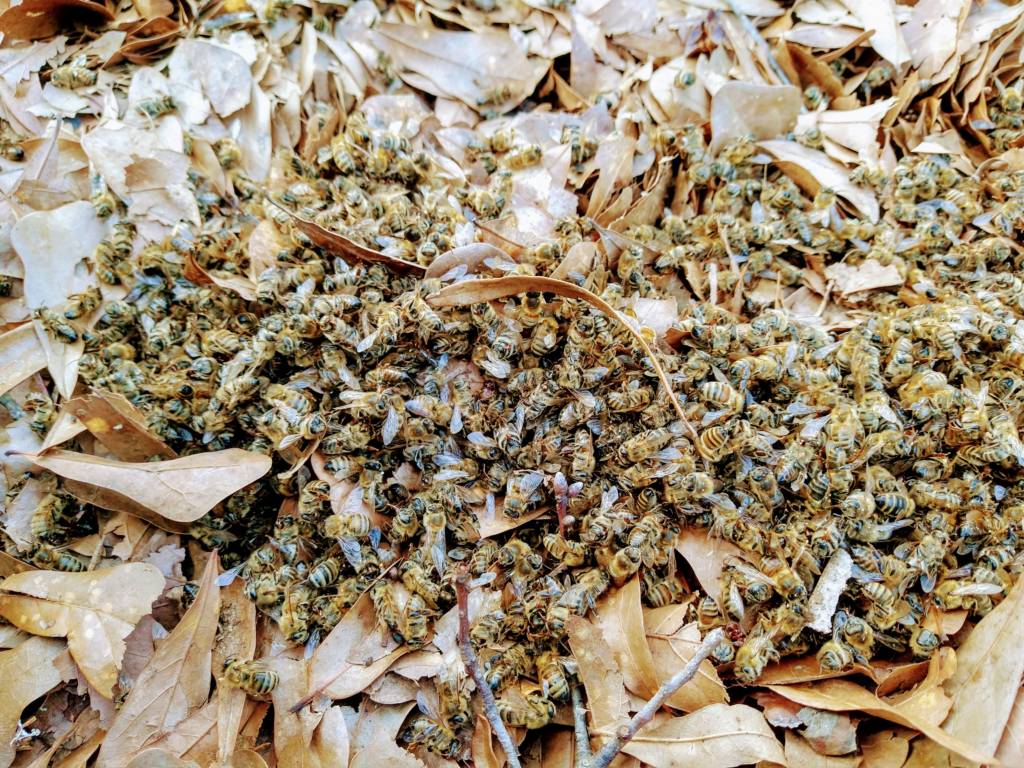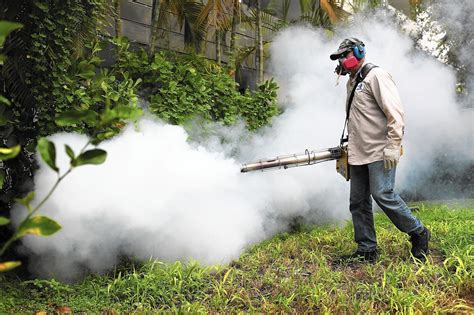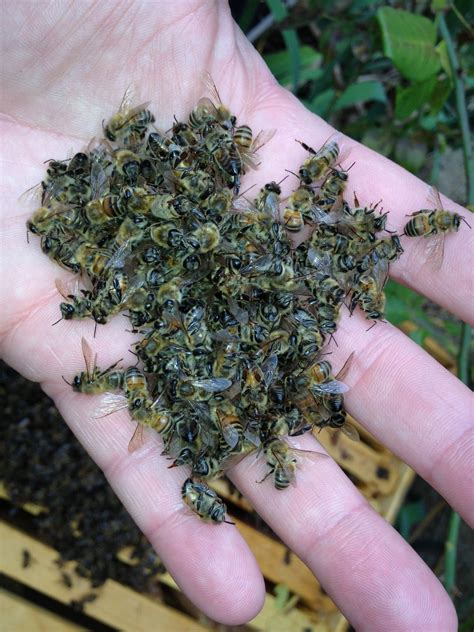
Pesticide Weakened Hive Collapse
 Every year as the weather improves, I try to post a head’s up to the local neighborhood social media groups. As “mosquito season” approaches yard/lot fogging and spraying companies heavily canvas homeowners for their services.
Every year as the weather improves, I try to post a head’s up to the local neighborhood social media groups. As “mosquito season” approaches yard/lot fogging and spraying companies heavily canvas homeowners for their services.
In the past, I’ve tried to close up hives if someone is spraying very close to our yard but its almost impossible. Treatment companies do not coordinate coverage and tend to spray when its convenient to them, instead of in the evenings when bees and other helpful insects are less likely to be impacted. As a result, hives usually suffer some significant die off as a direct result of “pollinator friendly” spraying.
 The Inconvenient Truth of Pesticide Treatments
The Inconvenient Truth of Pesticide Treatments
Some pesticides are straight up indiscriminate (Class I). This was probably the case in the massive die-offs in the wake of South Carolina mass spraying which, tragically, came with little or no warning to the public.
Other pesticides fall along a spectrum of risk. The industry standards for a “safe” rating for any particular pesticide means it falls below a certain toxicity thresh hold or only kills a certain number of unintended targets.
“Normal” die-off is considered <100 bees per hive, 200-400 per hive is considered “low” and 500-1000 per hive is categorized at “medium”. Repeated “low” or a single “medium” could probably be a catastrophic tripping for a local/backyard beekeeper.
However, even survivors can be compromised. For example, “sub-lethal toxicity” (Class III or less) has been show to weaken surviving bees, resulting in compromised immunity, development disorders, reduced foraging ability, impaired memory/learning, etc.
The 2019 spraying season resulted in a few bad days where a few dozen bees suddenly died displaying the classic signs of fast toxic reaction. Cumulatively, however, this resulted in the collapse of an entire hive in a few months.
Each year, I try to get out ahead of any larger, widespread spraying. I totally respect and understand my neighbor’s needs to have comfortable yards, without being “eaten alive” and I’m optimistic we can have the best of both worlds.
At the very least, please insist that your control service spray very late in the afternoon or early evening. This can reduce the by-kill of pollinators, as many more bees will be relaxing in/near their hives after a long day’s work by this time.
I promise my girls won’t pass judgment, nag or launch into preachy debates about the safety thresholds of various pesticides. Just give us a chance to take some basic precautions and you’ll have our thanks and gratitude.
Have a great outdoor season and thanks for planting the tasty gardens!
A broad, persistent and powerful insecticide, that is harmful to honeybees and some other beneficial insects. Many people are not aware of its complications, because it is sometimes marketed as “natural” due to its chemically similarity to naturally occurring nicotine. The complication comes when well-intentioned consumers purchase bee-friendly plants from nurseries and other sources that have been treated with Neonicotinoids to protect them from insects. Because the Neonicotinoids can last a long time, the newly introduced plants attract and then poison local honeybees. Among bees, it has a particularly insidious effect. Instead of killing outright, it retards the bees’ ability to foraging, learn and navigate to and from flowers and the hive. Lost bees die of exhaustion, unable to return to the hive and the hive is progressively weakened, opening it up to other threats. To avoid this Neonicotinoids, read nursery labels closely, inquire about distributor and retailer practices, purchase/replant existing local plants and consider shopping at certified/trusted organic dealers.